The fight against terrorism has an urgency beyond the survival of Israel
In degrading Iran’s capabilities, Israel is not only protecting its own security, it’s reducing one of the central strategic threats to the liberal international order and to the West. Washington understands this. Canberra does not.
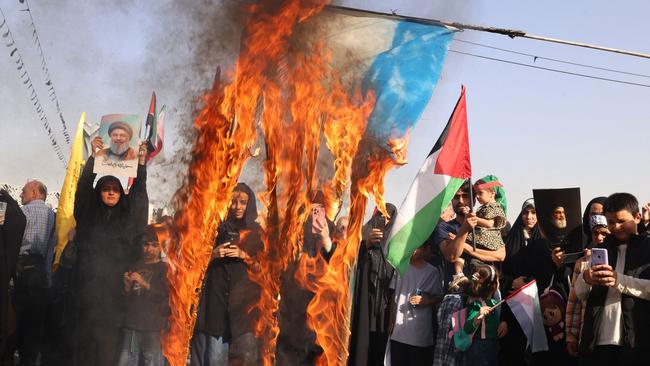
The size, strength and range of Israel’s military action against Iran will have profound consequences. If it’s too small, it will convince Tehran’s mullahs they can strike Israel with something like impunity. If, alternatively, it ends up leading to a more direct war, involving the Americans, unlikely but possible, it could be a turning point in Middle East, or global, history.
The stakes for everyone, including Australia, which so far has covered itself in ignominy, are colossal.
Israel and Iran are already at war, more than a cold war, less than total war. They’ve been at war for decades. It mostly has been an indirect war, carried out on Iran’s side mainly by proxies, with Israeli retaliation often happening in the territory of third countries.
We should be clear what this war is about. Iran and Israel are more than 1000km apart. They have no conflicting territorial claims. Each is an inheritor of one of the great Middle East civilisations, Judaism and ancient Persia. Under the shah, Iran was a friend of Israel. But when the ayatollahs took control in 1979, they did so in the name of a blood-soaked Islamist ideology, much influenced, despite being Shia rather than Sunni, by the writings of the Muslim Brotherhood. This Islamist world view demonises the West, the US (the Great Satan), Israel (the Little Satan) and Jews. This is an ideological war born of religious Iranian hatred of Israel.
This is one reason it’s so difficult for Western policymakers (especially Australians) who don’t believe in religion, or even ideology, to understand, why they are routinely baffled by Tehran’s actions.
Now the Iran-Israel war is moving to direct confrontation. The war is little understood, so Israel is vilified in ignorance and irrationality. No one, incidentally, understands Iran better than the Gulf Arabs. Israel is involved in an existential struggle for survival, not only against Iran but against a series of regimes and movements, all fired by anti-Semitism, that wish the complete destruction of Israel and death to the Jews.
In recent weeks the Israel Defence Forces and intelligence agencies, under Benjamin Netanyahu’s coalition government, have demonstrated devastating technical expertise and achieved astonishing success.
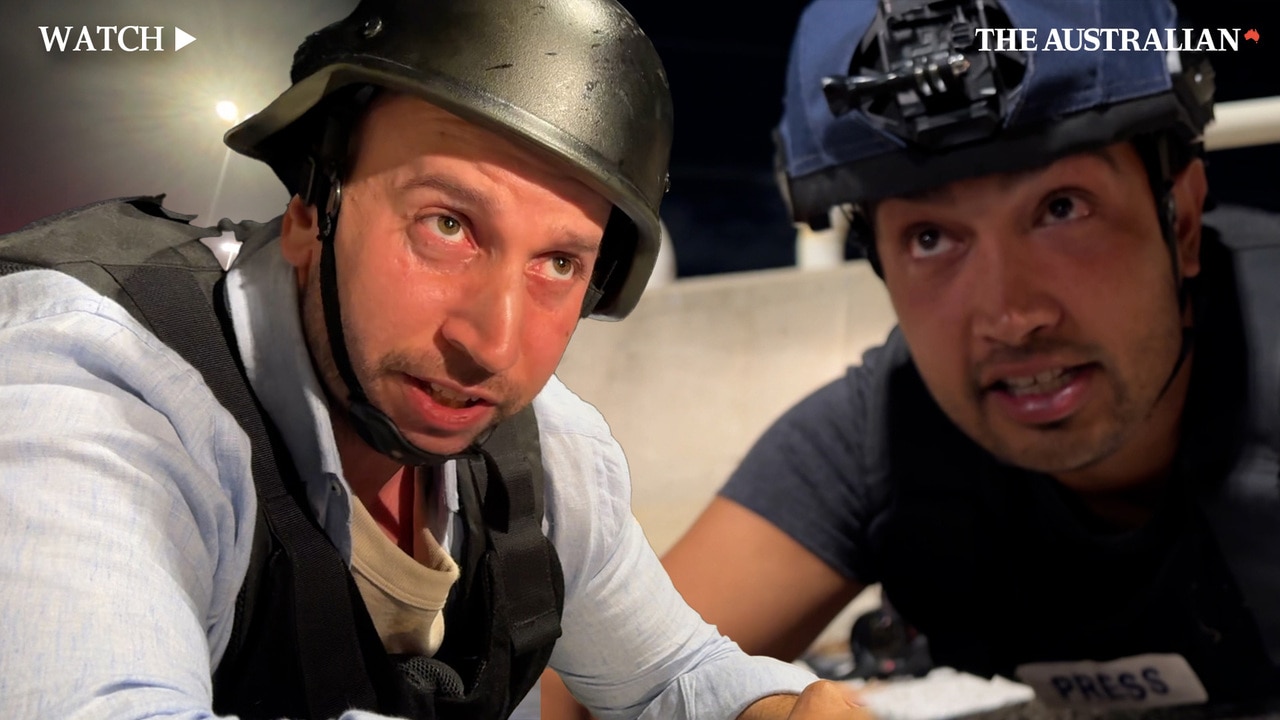
Yet it may be that Israel faces its gravest threats since the Yom Kippur War in 1973. Jerusalem has decided to meet these threats head-on, and in the process to transform the Middle East’s security architecture. To do this it’s effectively fighting a war on six fronts:
One: It’s trying to remove the threat of terrorist organisation Hezbollah, the world’s most heavily armed non-state military, based in south Lebanon, right on Israel’s northern border.
Two: It has decimated the terrorist group Hamas, which committed the savage October 7 atrocities.
Three: It’s trying to keep the corrupt, decrepit Palestinian Authority on its feet and functioning in the West Bank.
Four: It’s seeking to address, partially or in full, the relentless campaign of destruction and terrorism from Iran, evidenced in the “ring of fire” of Iranian proxies surrounding Israel.
Five: It has to contain the terrorist threat within Israel itself, as demonstrated by the latest terrorist killings in Tel Aviv, responsibility for which was claimed by Hamas.
Six: It’s trying, with great difficulty, to get a fair hearing and some understanding of its circumstances in the international media, especially in the West, and maintain its international political position.
Even for a nation as clever as Israel, with its population of less than 10 million, that’s a lot, all at once.
Israel’s only real ally is the US. It once had an ally in Australia, but under the new anti-Israel direction of the Albanese government that’s no longer the case. Eighty years of deep friendship have been trashed. Australia is a very marginal presence in the Middle East, and was only ever of assistance to Israel in expressing moral solidarity in a hostile global environment, the sixth front in Israel’s long war. It was essentially a question of Australian self-respect.
OCTOBER 7: A YEAR ON
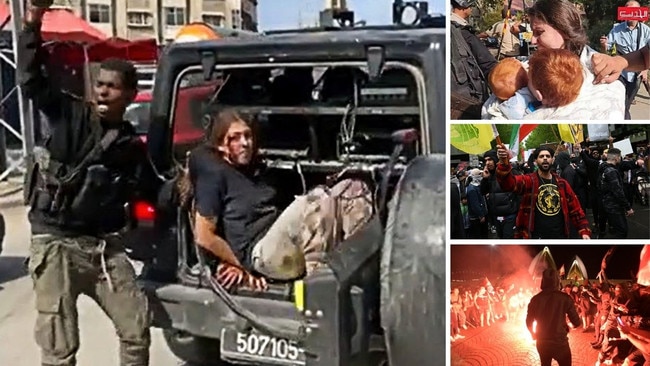
Australia is not the same country — but too many are in denial
Since the October 7 attacks, Australian values have been traduced. What is happening affects the entire country and the collective impact is profound.

After ‘51 days of hell’, former hostage haunted by fear for husband
Aviva Siegel longs for Keith, her beloved husband of 43 years, left behind by a deal that was struck to set her free. Her heart remains in Gaza: in a filthy room, with a weakened Keith, somewhere in the territory’s miserable ruins.
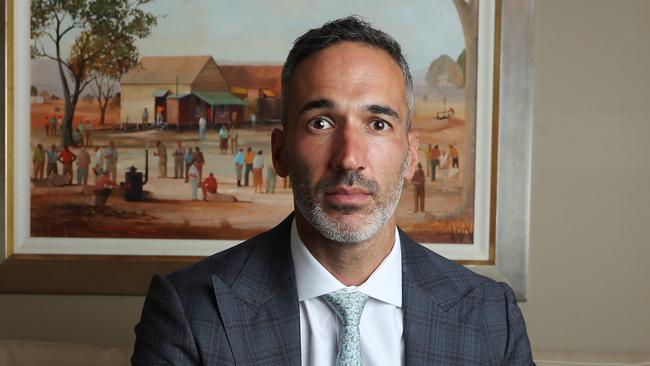
Attacks on Jews at record levels
Australia’s Jewish community has suffered its most traumatic year since records were first kept, with more than 1800 anti-Semitic incidents reported across the country, a staggering 324 per cent increase on the previous year.

No longer ‘one and free’: Nation torn apart by vile ignorance
Not since the Vietnam war, more than half a century ago, has a foreign conflict so divided the nation.
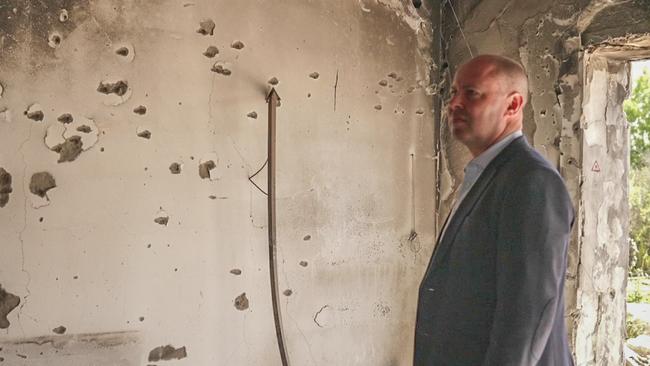
Australia has been weak when we needed to be strong
Labor’s doublespeak and equivocation have made the nation less safe as a result.

‘Genocide’ the modern-day blood libel to demonise Jews
The anniversary of the October 7 massacres compels me to reflect on the toughest 12 months of my long, happy and deeply fulfilling life as a Jewish Australian.
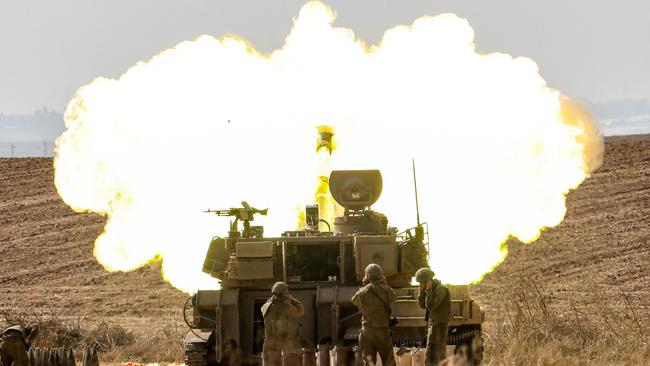
Two enemies, two paths – and one deadly objective
Iran relies on violence to achieve its goal of destroying Israel and its people, while the Palestinian threat is more subtle.
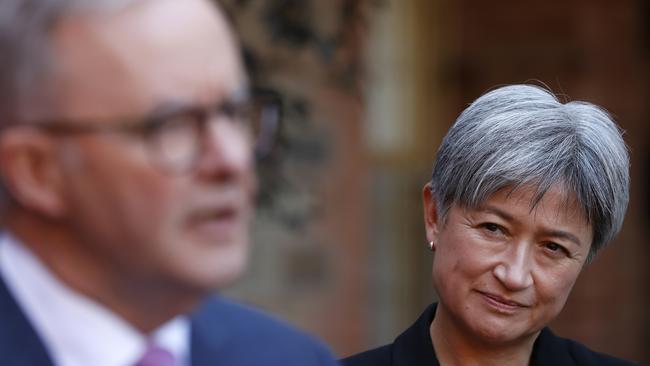
The tweet that captures the cowardice of Labor
There is deep sorrow still on this anniversary of October 7 among Jews of the left like me, deep sorrow and pain. And there is a sense of betrayal.
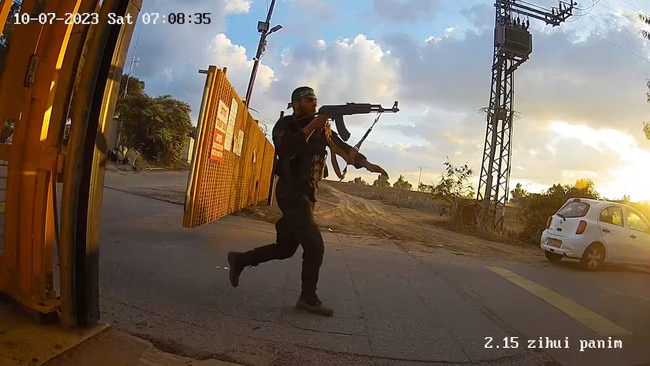
‘They’re here’: a family’s tale of escape as Hamas terrorists attacked
The October 7 terrorist attacks in Israel shocked the world. In this gripping first-hand account, Amir Tibon describes how his family’s safety hung in the balance for hours.
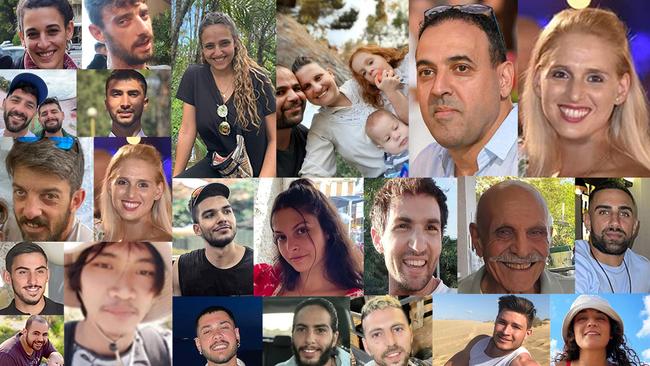
The nagging thought haunting the families of the Hamas hostages
A year on from the October 7 attacks, with more than 60 hostages still in captivity inside Gaza, families are stuck in a world of questions without answers.
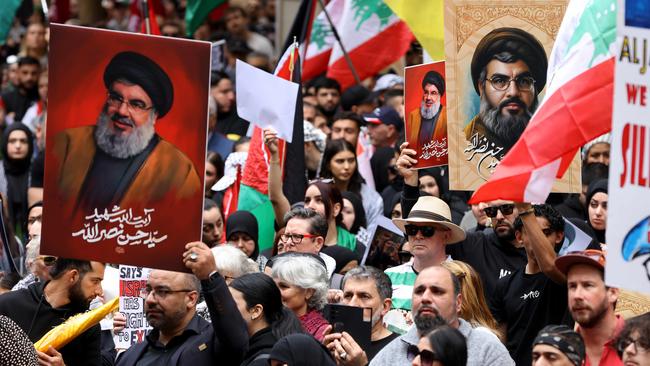
Look around, and you’ll see Hamas’ goals of October 7 fulfilled
Israel is fighting on every front, anti-Israel protests are global, diplomatic pressure on Israel is building and its allies are losing patience. Division and mistrust between Muslim, Jewish and other populations are growing around the world. There is only one way to turn it around.

The real-life horror movie our politicians refuse to see
Raw footage, running for about 45 minutes, captures the unspeakable horror of October 7: innocent people being murdered, beheaded, hunted down, raped, kicked, bashed, burnt alive. Here’s what Australia’s leaders had to say when I asked if they had seen it.
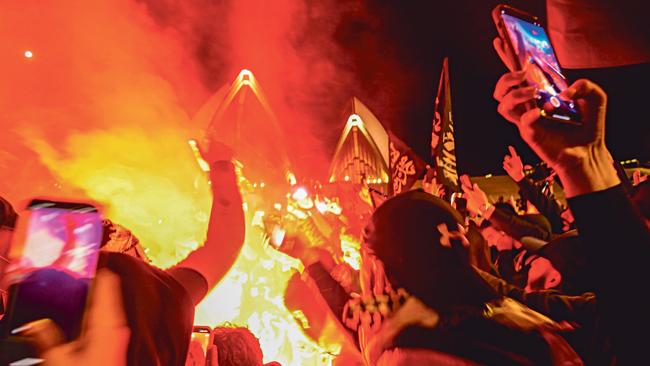
We need to talk about the crisis in Western civilisation
The October 7 pogrom unleashed a wave of sympathy across the West – for the perpetrators.
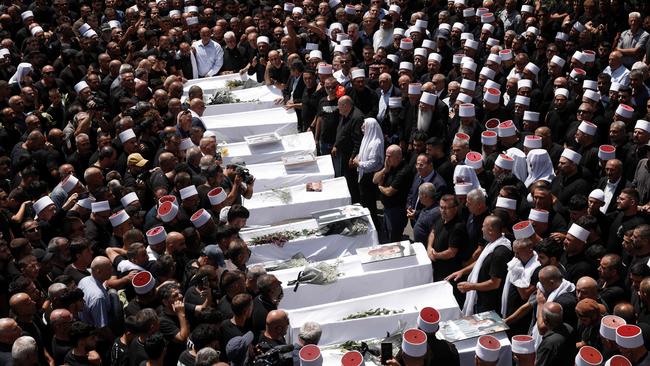
To the political left, some kids matter more than others
In my life I never imagined a situation where the government of a free, functioning democracy such as Australia would be unable to tell right from wrong. Would be so comfortable walking in step with the wicked, unable to take a stand against evil.
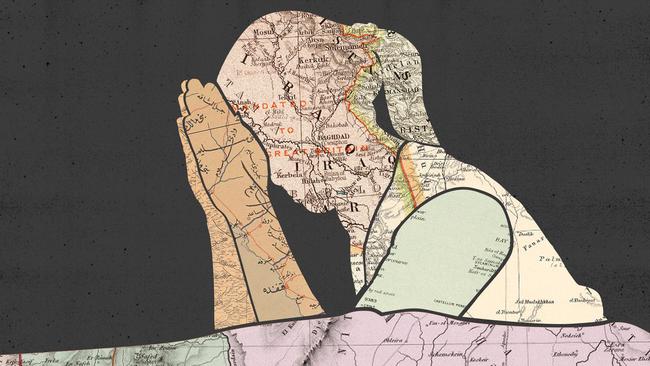
Notes from a long war: Israel one year on from the October 7 massacre
This war on the ‘villa in the jungle’ was launched to test a thesis. It has been disproven at a very high cost.

In exile: how Jews became a perpetually persecuted people
Without a homeland, their community was at the mercy of monarchs, popes and prime ministers. For the writer, tracing the history of Sephardic Jews in Europe was to walk in the forever-moving footsteps of his forebears.
On the first front, Israel has crippled Hezbollah. I had a long conversation with Ehud Yaari, Israel’s veteran journalist, author and probably still its shrewdest strategic analyst. He told me it’s likely Israel’s airstrikes wiped out half or more of Hezbollah’s long-range missiles and perhaps 80 per cent of its medium-range missiles. Famously, Israel assassinated Hezbollah leader Hassan Nasrallah.
“The top 40 people in Hezbollah’s military structure, except for three or four, are now gone,” Yaari says. “It’s difficult for them to operate now, so they keep firing at pre-set targets. Israel will now run a very limited ground campaign in southern Lebanon. Hezbollah had built tunnels under the villages all along the 100km border.”
The purpose of this tunnel network was to infiltrate large numbers of Hezbollah terrorists in civilian clothing, with stored weapons, to stage a lightning strike across the Israeli border and carry out another gruesome massacre along the lines of Hamas’s October 7 atrocities.
This danger, plus the 9000 rockets Hezbollah has fired at Israel during the past 12 months, means 60,000 to 80,000 Israelis have evacuated Israel’s northern most communities, tiny towns such as Metula, which juts right into Lebanon, and bigger places such as Kiryat Shmona, Israel’s northernmost city.
Israel also bombed Hezbollah concentrations in southern Beirut and targeted other terror groups in Lebanon and Syria. There’s a terrible human cost to Israel’s operation in Lebanon. A fifth of Lebanon’s population, perhaps a million people, have been displaced, more than 1000 killed. Israel has also already lost soldiers in the ground operation. The moral responsibility for all this lies entirely with Hezbollah.
Israel has hardly been trigger happy. It took 9000 incoming rockets, the dislocation of a large Israeli population and the imminent prospect of Hezbollah attempting October 7-style massacres before Israel acted.
Although the Biden administration early on called for a ceasefire, US Defence Secretary Lloyd Austin made it clear the US supported Israel’s operations to clear out Hezbollah installations near its border. The Albanese government made no such statement.
Israel doesn’t plan long-term occupation of any part of Lebanon. It wants to clear Hezbollah out from near its border, if possible push it back beyond the Litani River, 30km to the north. It also wants to destroy much of its rocket stockpile, kill its leaders and degrade its capabilities.
If no formal solution emerges, the Israeli army will likely take responsibility to make sure Hezbollah can’t operate within several kilometres of the border. Long term, Israel’s strategy is to so weaken Hezbollah that other factions in Lebanese politics, that mostly hate Hezbollah and that suffer enormously because of its slavish devotion to Iranian strategic diktats, rein in Hezbollah.
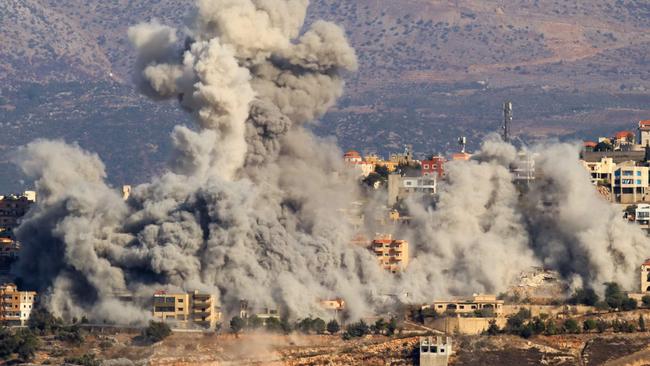
There are indeed binding UN resolutions demanding Hezbollah stay north of the Litani and also disarm. The UN Interim Force in Lebanon was supposed to ensure these resolutions. Obviously that never happened.
Counter-insurgency seldom provides permanent victory. The idea is to clear, hold and build. A professional military can normally clear an area of insurgents. It can also hold the area, at some cost. It’s almost impossible to build anything lasting against an insurgency with an outside backer and territory to retreat to. So Israel also hopes to create a dialogue within Iran about whether funding, to the tune of billions of dollars, its “ring of fire” around Israel – Hezbollah, Hamas, the Houthis in Yemen and other terror groups – is the best way to spend its money.
At its worst, this operation restores Israel’s deterrent posture and buys probably some years. It will take Hezbollah years to rebuild fully and it will need to be restocked with missiles and other weapons from Iran. Even if that happens in several years, Israel’s operation will be seen as necessary and successful across the entire nation.
The second front, against Hamas, has just about come to an end. Hamas is destroyed as the kind of military force it was. This too has come at a terrible human cost in Gaza. This is entirely the moral responsibility of Hamas. It not only knew its barbarism would compel this kind of Israeli operation. It also could have had a ceasefire, an end to Palestinian suffering, any time during the past 12 months by releasing the Israeli hostages it’s still holding.
The Gaza operation has also complicated Israeli security operations in the West Bank, front three, and containing Islamist terrorism within Israel itself, front five.
But it’s the fourth front, dealing with Iran, that’s the most urgent and consequential. In April, Iran fired 300 weapons at Israel, including drones, medium-range cruise missiles and ballistic missiles. With the help of the US, Britain and other regional nations, Israel intercepted virtually all of these. Then on Wednesday just gone, Iran targeted Israel with more than 180 ballistic missiles.
Again, the US helped Israel intercept almost all of them. There is some talk Iran fired hypersonic missiles. That’s unlikely. Ballistic missiles can at times reach hypersonic speeds (five times the speed of sound).
Israel’s missile defence is magnificent. Remember when American president Ronald Reagan was derided for promoting missile defence? Israel’s system has several layers. The Iron Dome intercepts short-range rockets, drones and other projectiles. It first calculates each projectile’s trajectory and leaves alone those that will fall harmlessly.
David’s Sling intercepts medium-range missiles. And the separate Arrow system, jointly developed by Israel and the US, is a technology miracle and, as we’ve just seen, effectively intercepts ultra-high-speed ballistic missiles.
Overall, the US has provided magnificent support for Israel, even as it early suggested a ceasefire, advised initially against an Israeli operation against Hezbollah and has opposed the idea of Israel hitting Iran’s nuclear facilities. However, in response to Iran’s attack, Joe Biden declared: “Make no mistake, the United States is fully, fully, fully supportive of Israel.” Incidentally, Britain’s Prime Minister, Keir Starmer, said: “We stand with Israel” and explicitly backed Israel’s right to take retaliatory action against Iran. The Albanese government criticised Iran’s missile attack but made no statement of explicit support of Israel remotely like Biden or Starmer.
The US has supplied Israel with huge quantities of munitions and has moved awe-striking naval assets to the Mediterranean where they are well placed not only to help Israel’s missile defence but, if necessary, to intervene decisively against Iran or any of its proxies.
The leadership in Iran, plus Hezbollah, Hamas, the Houthis in Yemen and most other groups Iran funds, are motivated by a core ideology that demonises the West, hates the US, hates Israel and explicitly hates Jews. This ideology doesn’t fit the neat categories of undergraduate foreign relations textbooks, which seems to be the extent of the Albanese government’s intellectual resources regarding the Middle East.
The Albanese government frequently says Israel has the right to defend itself but then opposes every single measure of self-defence Jerusalem takes. Similarly, Foreign Minister Penny Wong, in her appalling speech at the UN General Assembly, put all the moral burden on Israel, as though Iran and its terrorist proxies were just fellow members of the Rotary Club with which Israel was having an unfortunate disagreement.
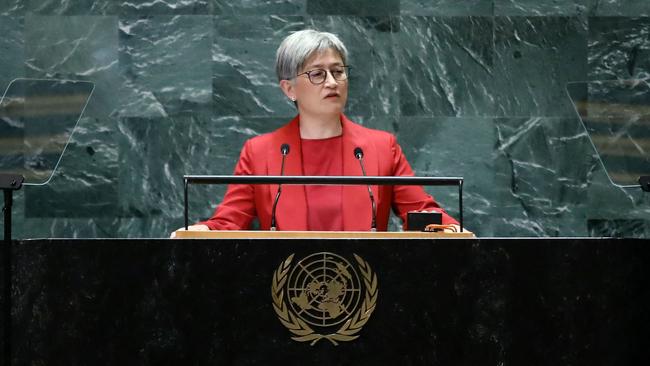
Dave Sharma, the Liberal senator who was for four years Australia’s ambassador to Israel, believes the Albanese government’s rhetoric inhabits a fantasy world.
He told Inquirer: “The Albanese government should be explicitly defending Israel’s right to defend itself against Hezbollah and Iranian aggression and to respond to that aggression and degrade it militarily. We’ve seen the US and UK both do that.
“Albanese and Wong’s continued calls to de-escalate and for restraint are unhinged from reality because you need two parties to de-escalate. So really it’s coded language to say Israel shouldn’t respond.”
But imagine the consequences if Israel didn’t respond to Iran’s attack. The Americans knew in advance when Iran’s strike was coming and what the four main targets would be, mainly Israeli air force bases and Mossad headquarters. The Americans naturally informed the Israelis. It’s widely believed in Israeli strategic circles Iran told Washington in order to encourage the Americans to restrain Israel’s response.
The Americans did this in April, when Israel responded to Iran’s first attack with a single strike on an Iranian air defence radar.
If the Americans convince the Israelis to respond symbolically again, Iran has achieved a mighty strategic gain. It will have established that whenever Israel takes tough action against an Iranian proxy, Tehran can fire hundreds of ballistic missiles at Israel and expect no effective response.
Meanwhile, Iranian media has been lying to the Iranian population and telling them their missiles hurt Israel badly.
Israel now must decide how to respond. Netanyahu says his nation will attack those who attack Israel. There are four likely target sets for Israel: economic infrastructure such as oil facilities; military command and control centres or air bases; ballistic missile forces or factories that make ballistic missiles; and Iran’s nuclear facilities.
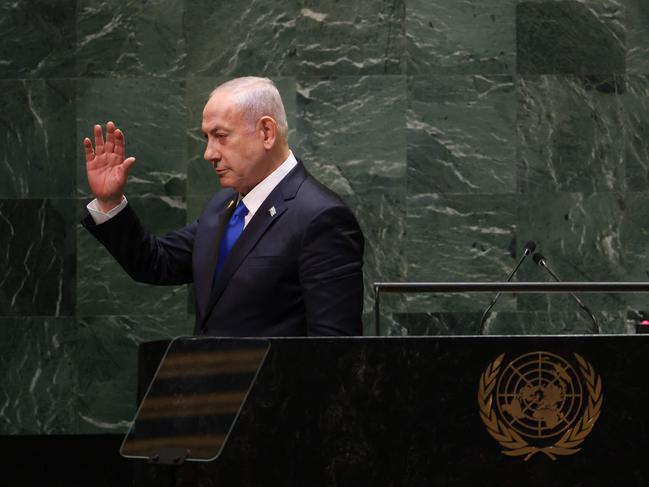
Biden says he’s against Israel attacking Iran’s nuclear facilities, although Israel did the entire world a favour when it knocked out Iraq’s nuclear program in 1981, and Syria’s in 2007.
Iran has also said if its oil facilities are attacked it will in turn attack oil facilities in Saudi Arabia, United Arab Emirates, Kuwait and Azerbaijan. If these threats were carried out that could mean oil at $US200 a barrel just before an American election, the US embroiled in Middle East military conflict, and Donald Trump wins the presidency.
It’s not clear Iran would carry out such a threat. But the threat itself demonstrates the instinctive understanding dictatorships have of deterrence theory and practice. Iran is deterring Biden, where Biden has not generally deterred Iran.
Former International Atomic Energy Agency experts think Tehran could well develop 10 nuclear weapons by next April. Any ballistic missile Iran fired at Israel could in those circumstances possibly be carrying a nuclear warhead.
Israel on its own could damage Iran’s nuclear program substantially but it would take a joint operation with the US to severely set back the program, by years and years. Malcolm Davis of the Australian Strategic Policy Institute says this poses an acute strategic dilemma: “Does the US, with Israel, strike Iran’s nuclear program, with all its risks, or does it just watch the Iranians acquire nuclear weapons?
“Another concern is that China could move against Taiwan, if the US gets drawn into the Middle East. The US wouldn’t have sufficient military resources.”
In degrading Iran’s capabilities, Israel is not only protecting its own security, it’s reducing one of the central strategic threats to the liberal international order and to the West. Washington understands this, which is why it ultimately backs Israel even amid pervasive political difficulties.
It’s a pity Canberra so manifestly lacks this basic strategic understanding.


Israel will strike back militarily against Iran, probably within days, almost certainly within a week or two. This will be in response to Iran firing more than 180 ballistic missiles at Israel. Iran has declared that if Israel strikes back, it too will strike again, but this time harder and wider; it may strike against any nation that helps Israel.